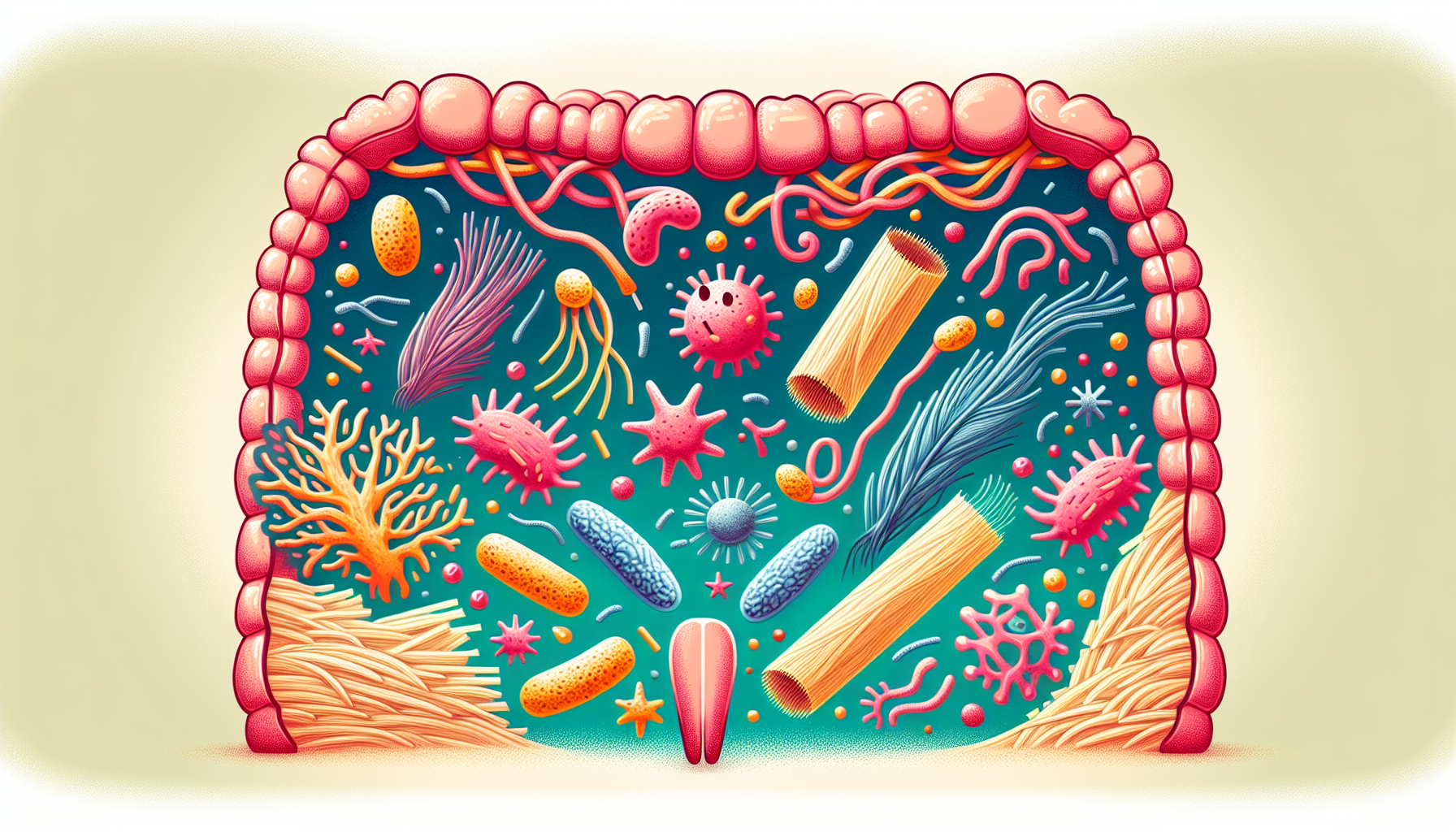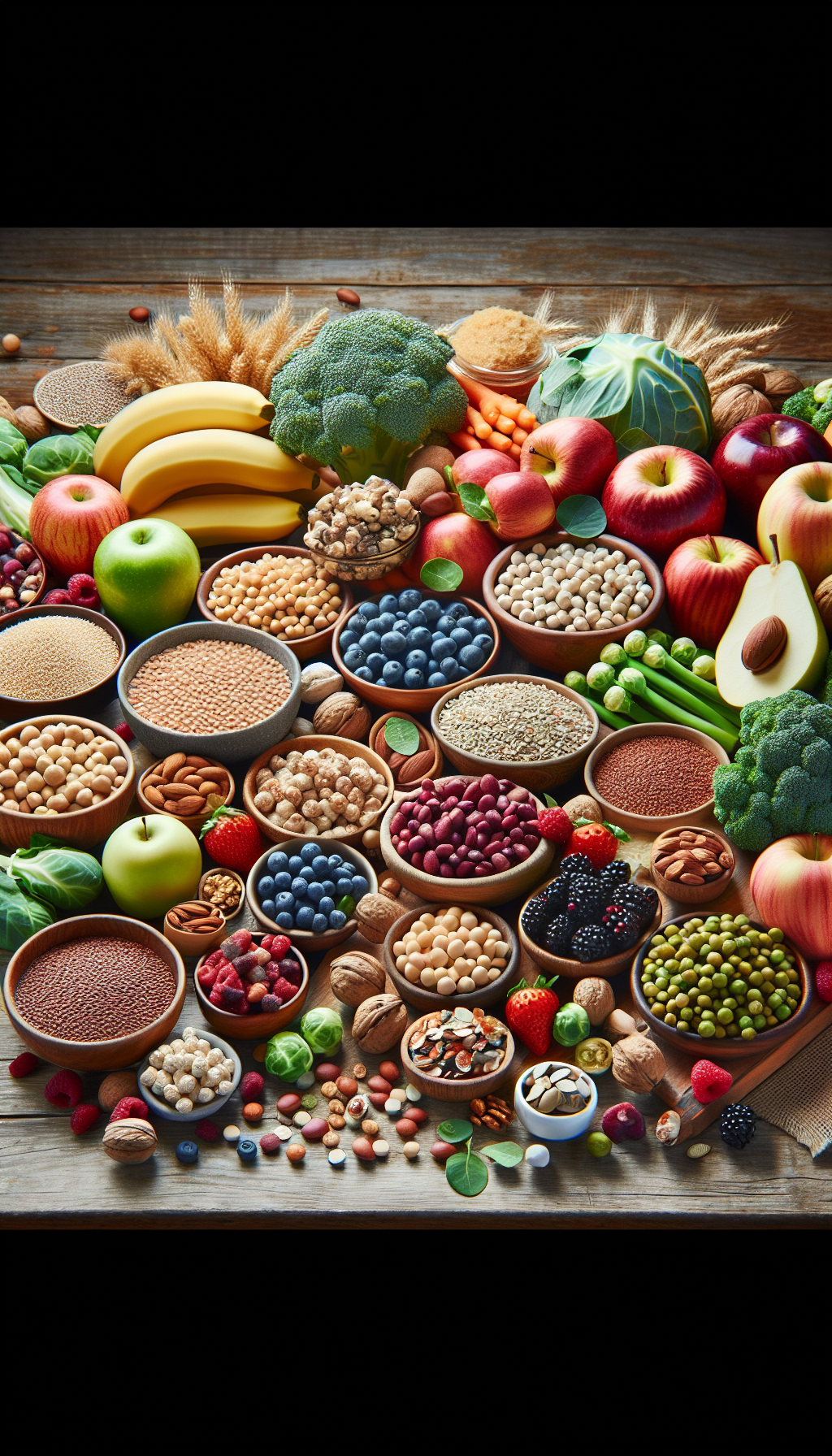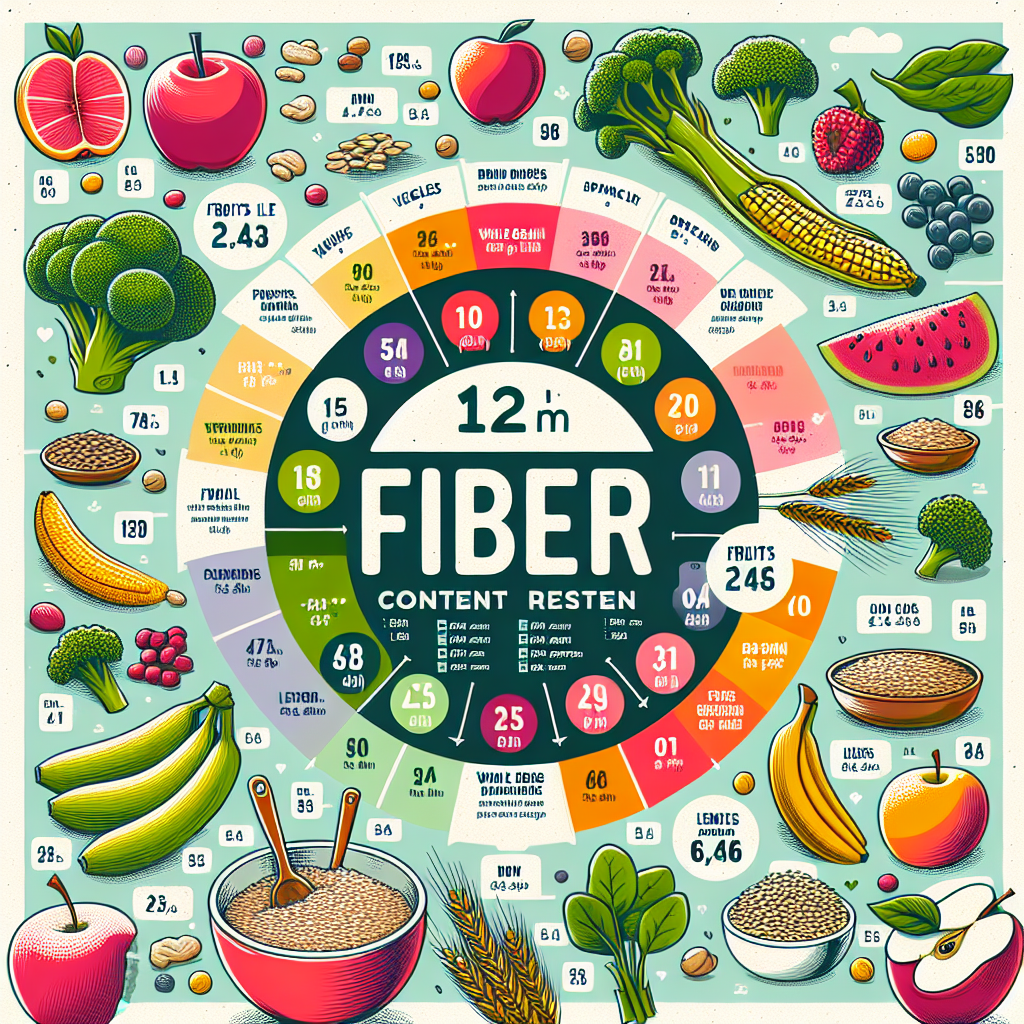Fiber is a crucial component of our diet, not only for digestive wellness but also for maintaining a balanced and diverse gut microbiota. The gut microbiota, comprising trillions of microorganisms, plays an essential role in our overall health, influencing everything from nutrient absorption to immune function. In this article, we will delve into the complex interplay between dietary fibers and our gut flora, uncovering the benefits and providing guidance on how to harness this relationship for optimal health.
The Role of Dietary Fiber
Dietary fiber, found in plant-based foods such as fruits, vegetables, grains, and legumes, is best known for its ability to prevent constipation and maintain bowel health. However, its benefits extend far beyond easing digestion. Fiber is broadly categorized into two types: soluble and insoluble. Soluble fiber dissolves in water to form a gel-like substance, which can help lower blood cholesterol and glucose levels, while insoluble fiber does not dissolve, adding bulk to the stool and aiding in its passage through the digestive system.
For an in-depth understanding of how dietary fiber impacts digestive wellness, refer to the comprehensive guide on Dietary Fiber and Digestive Health: The Undeniable Link.
The Gut Microbiota: A Complex Ecosystem
The human gut is home to a complex ecosystem of bacteria, viruses, fungi, and other microorganisms that constitute the gut microbiota. This community of microbes performs various vital functions, including breaking down food components that the human digestive enzymes cannot, synthesizing certain vitamins, and protecting against pathogens.
Our dietary choices, especially our intake of dietary fiber, significantly influence the composition and activity of these gut microbes. To explore more about the gut microbiome and its functions, the article Probiotics and Prebiotics: Nourishing a Healthy Gut Microbiome offers valuable insights.
Fiber and Gut Flora: A Beneficial Alliance
When we consume dietary fiber, particularly soluble fibers and resistant starches that escape digestion in the upper gastrointestinal tract, they become a feast for the beneficial bacteria in the colon. These fibers are fermented by the gut bacteria, producing short-chain fatty acids (SCFAs), such as acetate, propionate, and butyrate. SCFAs serve as a primary energy source for colon cells and have been shown to exert anti-inflammatory effects, decrease the risk of colorectal cancer, and strengthen the gut barrier function.
To better understand the relationship between gut health and overall wellbeing, consider reading The Importance of Gut Health for Overall Wellbeing.
Prebiotic Fibers: The Unsung Heroes
Prebiotics are specialized plant fibers that nourish the good bacteria already in the large bowel or colon. While all prebiotics are fiber, not all fiber is prebiotic. Foods rich in prebiotic fiber include garlic, onions, leeks, asparagus, bananas, and whole grains.
For further reading on the benefits of prebiotic foods, the article The Importance of Prebiotic Foods in Gut Health is a valuable resource.
Strengthening the Immune System
A diet rich in diverse fibers can lead to a diverse microbiota, which is associated with a stronger immune system. The gut-associated lymphoid tissue (GALT) is the largest immune organ in the body and is heavily influenced by the gut microbiota. A healthy and balanced microbiota can help train and regulate the immune system, reducing the risk of inflammatory diseases, infections, and even allergies.
For a deeper look into the impact of gut health on immunity, readers may find the article The Relationship Between Digestive Health and Immunity particularly informative.
Fiber’s Role in Weight Management and Metabolic Health
High-fiber diets are associated with lower body weight and reduced risk of developing metabolic syndromes. Fiber’s ability to increase satiety, reduce appetite, and improve glycemic control are well-documented benefits that can aid in weight management.
To explore the connection between digestive health and weight management, the article How Digestive Health Influences Weight Management provides a thorough analysis.
External Resources for Further Exploration
- The Gut Microbiota and Its Role in Health and Disease – A niche resource providing updates on the latest research and news about the gut microbiota.
- International Scientific Association for Probiotics and Prebiotics (ISAPP) – An organization dedicated to advancing the science of probiotics and prebiotics.
- Whole Grains Council – A resource for information on whole grains and their health benefits, including fiber content.
- American Society for Nutrition – A professional organization that offers research and education on nutrition, including the importance of dietary fiber.
- Dietary Guidelines for Americans – Official recommendations that emphasize the importance of fiber in the diet for health promotion and disease prevention.
Incorporating Fiber into Your Diet
Incorporating more fiber into your diet can be simple and delicious. Start by adding a variety of fruits, vegetables, whole grains, legumes, nuts, and seeds to your meals. Gradually increase your fiber intake to allow your gut to adjust, and be sure to drink plenty of water to help the fiber move through your digestive system without causing blockages.
Conclusion
The relationship between dietary fiber and gut flora is a symbiotic one that plays a critical role in maintaining our health. By understanding and leveraging this connection, we can support our digestive system, enhance our immune response, manage our weight, and contribute to our overall wellbeing. As we continue to uncover the intricate workings of our gut microbiota, the importance of dietary fiber in our diet becomes ever more apparent. Make fiber a friend in your dietary choices, and your gut flora will surely thank you.



